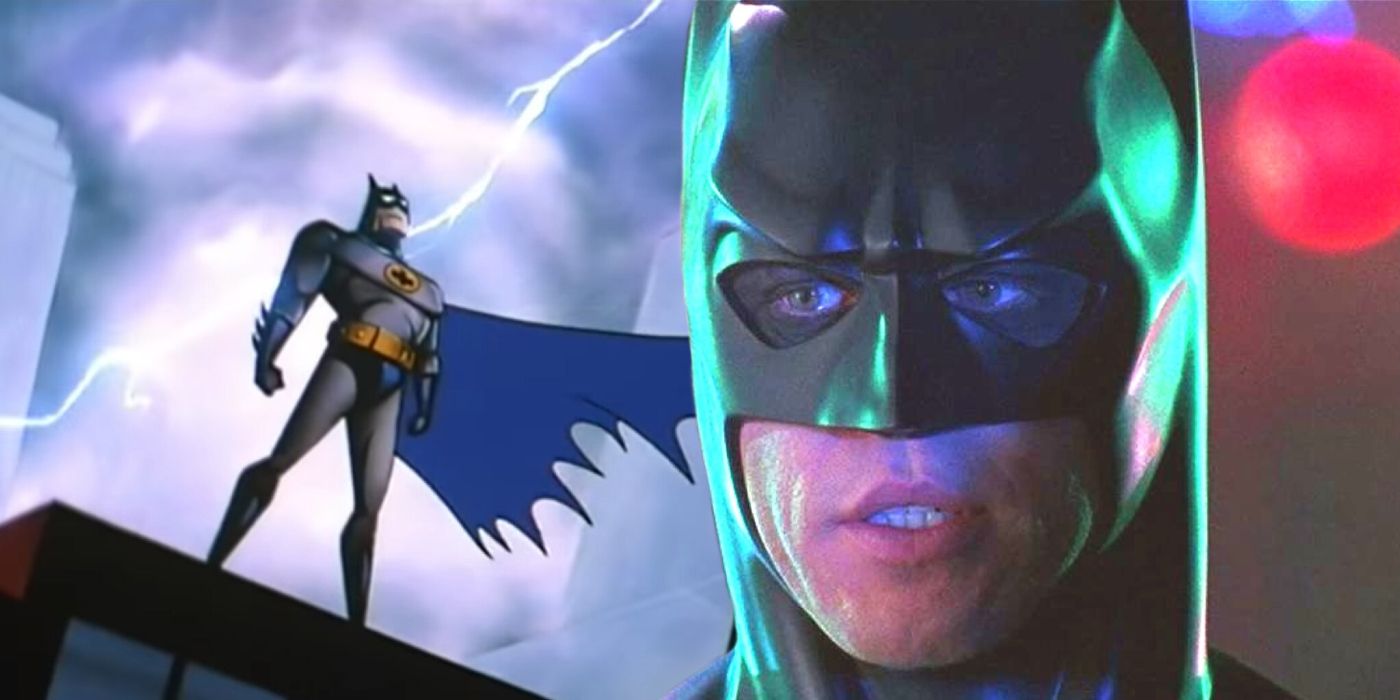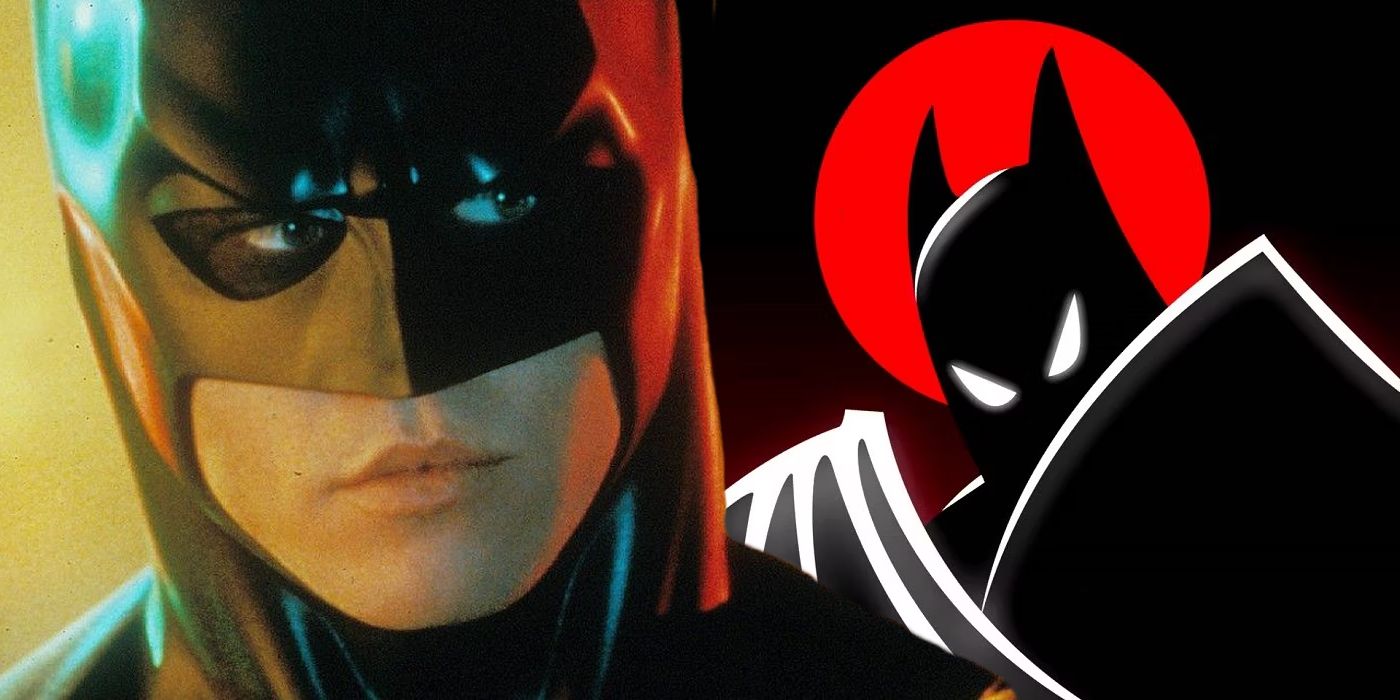After Batman: The Animated Series delivered one of the most accurate representations of Batman, the movies of Joel Schumacher - especially Batman Forever - were secretly ruined before they were even made. Batman is undeniably one of the most iconic superheroes of all time. The Dark Knight has become a pop culture staple over his decades of popularity, and this has primarily been achieved outside the world of comic books by a consistent output of Batman movies, TV shows, and video games.
Though most modern superheroes have seen their best adaptations to date come in the past two decades, Batman was actually being done justice before that. 1989 saw Tim Burton's Batman release, with Michael Keaton in the lead role, which he then reprised in 1992's Batman Returns. That same year, Batman: The Animated Series was released, and delivered perhaps the most accurate and well-rounded Batman imaginable. The dark nature of Batman: The Animated Series was highly praised, capturing the gothic elements of Gotham City while still embracing the wackiness of some of Batman's most cartoonish villains.
During Batman: TAS's run, Joel Schumacher was selected to direct Batman Forever. After Michael Keaton left the lead role, Val Kilmer was cast as his replacement, and Schumacher's vision began to come to life. Many of the ideas that Schumacher had about his Batman movie were similar to those that made Batman: TAS great, but they didn't translate so well into live-action. This led to Batman Forever ultimately being a disappointing and jumbled mess, because it came off incredibly poorly in comparison to the wildly successful Batman: TAS.
Batman: TAS Set A Perfect Tone – And Undermined Schumacher's Movies
Though Joel Schumacher's original plans for Batman Forever were to explore the darker human side of Batman, the difficulty in reconciling his two personas, and the guilt he felt over his actions as the vigilante, these were reportedly quashed by the studio. They wanted Schumacher's movie to better appeal to a younger audience, and therefore, the director opted to embrace the lighter side of the Batman mythos. This was reportedly the reason that Michael Keaton opted not to return, and also caused frequent clashes between Schumacher and Kilmer.
In fact, Bruce Timm, creator of Batman: The Animated Series, was also among those who voiced his distaste for the film. As Batman: TAS had already perfected the blend of Batman's more cartoonish elements with the character's inherent darkness, it rendered Schumacher's vision for Batman Forever redundant. There was no need for Schumacher to deliver a wackier, lighter Batman, because Batman: TAS had already proved that mixing sympathy and darkness was the best possible approach for making Batman more accessible to a young audience.
Ultimately, Schumacher's vision for Batman Forever stemmed from a nice idea. His plan to make a movie that would appeal to audiences of all ages was misguided, though, because Batman: TAS had already done so far better. The perfect way in which Batman: The Animated Series adapted the world of the Caped Crusader thoroughly undermined Joel Schumacher's intentions for Batman Forever, and it made the live-action movie far less appealing than it was intended to be.


